Rideshare companies like Uber and Lyft revolutionized the way Katy residents and visitors get around the city. However, the unique way these companies work makes the insurance claims process complicated. Luckily, Texas has laws that ensure you have a way to seek financial recovery for your injuries if a driver causes an accident while working for a rideshare company.
The Katy personal injury attorneys at D. Miller & Associates, PLLC™, can help you recover the damages you deserve after an Uber or Lyft accident. We know how Texas rideshare laws work and can help you understand how they apply in your case.
What Can I Receive After Being Injured by a Rideshare?
We take your ordeal seriously, fighting to recover damages to cover any costs related to your injuries, from major hospital bills to out-of-pocket expenses, including:
- Emergency medical care, like ambulance rides or ER visits
- Diagnostic and imaging tests, like X-rays or MRIs
- Rehabilitative care, like physical or occupational therapy
- Medical equipment, like wheelchairs or walking aids
- Prescription medications, like antibiotics or painkillers
- Lost income, like wages, commissions, or side jobs
- Wrongful death damages, like funeral and burial expenses
We can also support your pursuit of alternative medical treatment, such as acupuncture or chiropractic care. Studies like one from the Journal of Manipulative and Physiological Therapeutics highlight the pain-relief benefits of chiropractic care for lower back problems. We can wield this kind of research, as well as consultation with experts in the field, to support your pursuit of damages for alternative care.
Your financial recovery also considers the broader ramifications of your accident. Serious injuries could come with lifelong expenses, while others, like whiplash, can cause pain in victims a year after an accident, according to the Cleveland Clinic. Whether you face challenges for a few months or several years after your rideshare collision, they are challenges that warrant recognition.
Recovery for Intangible Losses
You don’t have to physically lose something to experience loss. Being injured can leave you emotionally and psychologically hurt, having lost things like your independence or your ability to enjoy aspects of your life.
These are intangible or non-economic losses, and your financial recovery can include damages for:
- Reduced earning ability
- Diminished quality of life
- Pain and suffering
- Mental anguish
- Emotional distress
Our rideshare collision attorneys serving Fort Worth can talk to you about these intangible consequences and how they can be acknowledged in your case.
We Have Experience With Both Texas and Rideshare Laws
Perhaps the most confusing element of a rideshare accident case is understanding who can be held responsible for your financial recovery. You can call on us to cut through this confusion.
We will identify the proper insurance company to handle your liability claim and hold the negligent driver responsible for their actions. Call our office today for a free case evaluation with an Uber and Lyft accident lawyer serving Katy.
How does the Texas Rideshare Insurance Law Protect Riders and Other Motorists?
Since rideshare companies are relative newcomers to Texas, lawmakers are still ironing out the statutes regulating how these businesses operate. Texas did not have a law regulating liability insurance coverage for Uber and Lyft drivers until 2016 when the current law took effect across the state.
This law requires rideshare drivers to carry a liability policy that provides coverage while they are working. It also requires the rideshare company to provide contingency coverage if the driver’s insurer denies the claim. If you are a passenger in a rideshare vehicle or if a rideshare driver hits your vehicle, the rideshare company should provide liability coverage.
Whose Insurance Company Pays Out if an Uber or Lyft Driver Hit Me?
The insurance company responsible for paying out your claim depends on whether or not the Uber or Lyft driver was working at the time of the accident. This makes filing this type of claim complicated, but through our investigation and by compiling evidence, we can work toward untangling the circumstances of your collision.
If the Driver Was “On the App,” but Did Not Have a Ride Planned
If a rideshare driver causes an accident while still waiting to claim a ride, their personal auto liability policy should pay out for your damages, including medical care, lost wages, and pain and suffering. In other words, the case is handled much like an accident with a regular driver by exchanging personal insurance information.
If the driver’s personal insurer refuses, the rideshare company’s contingency coverage may be available. This coverage must kick in when:
- The driver’s personal auto liability provider denies a claim;
- The driver does not have insurance; or
- The driver’s policy pays out its maximum limit but does not cover all your damages.
The driver’s insurance may reject a claim because they deem the driver as engaging in a commercial enterprise; some private policies do not cover accidents that occur in the course of business. Even with coverage, your injury expenses may be too high to be covered by the policy. After all, being hospitalized for just a few days can rack up a bill worth tens of thousands of dollars.
Uber’s coverage policy pays out a maximum of $50,000 per individual or $100,000 for all injured passengers. The company also offers $25,000 for property damage. Lyft offers a similar insurance policy. Both meet the minimum for contingency coverage for rideshare companies in Texas.
If the Driver Is En Route to a Passenger or Has a Rider in the Car
If a rideshare driver is en route to pick up a ride or a passenger is already on board, the rideshare company’s liability insurance coverage should pay out to cover your damages. Both Uber and Lyft provide a $1 million liability policy that provides coverage in these cases.
By filing a claim based on this policy, we can seek financial recovery to pay your medical bills, cover lost wages, and pay for your pain and suffering.
That being said, some rideshare companies will still fight to avoid being held liable. Our attorneys have experience navigating the complexities of rideshare accident claims. We can help you understand which insurance company is liable for damages in your case.
Whose Insurance Pays Out if I Am a Passenger in an Uber or Lyft During a Crash?
Anytime a passenger is on a trip in an Uber or Lyft, the rideshare company’s $1 million liability coverage is in effect. If the rideshare driver causes an accident during this time, this is the policy we will file your claim based on. If another driver hits your Uber or Lyft, that driver’s auto liability insurance should cover your damages, and we will pursue a claim with their insurance company.
If the at-fault driver does not have coverage, most rideshare companies offer $1 million in uninsured and underinsured motorist coverage. This policy could pay your medical bills, lost wages, and other losses if the at-fault driver does not have insurance or does not have enough insurance.
Are Uber and Lyft Liable for Drivers’ Actions?
When a traditional taxicab driver causes an accident, their cab company is often liable because of a legal concept known as vicarious liability. This concept holds employers responsible for the negligent actions employees take while on the job.
However, since rideshare company drivers are independent contractors, not employees, vicarious liability does not apply. This frees Uber and Lyft of liability in most rideshare accidents. In fact, the companies view themselves not as transportation services, but more like matchmakers, providing a service that pairs passengers with drivers. This careful characterization can make it harder to hold them responsible.
Still, depending on the details of your accident, we may be able to pursue a claim against the rideshare company in your case. If you believe Uber or Lyft bears responsibility for your accident, contact our office today so we can begin an investigation into your accident.
How does the Claims Process Work After an Uber or Lyft Accident?
Because of the complicated insurance situation with Uber and Lyft, pursuing compensation in these cases is often difficult. We can help you understand the identity of the liable party and the applicable insurance policy. We will guide you through the claims process and fight for the full value of damages available to you based on the facts of your accident.
In most cases, we can file an insurance claim with the appropriate insurer and negotiate a fair settlement that covers your accident-related expenses, pain and suffering losses, and even future care needs. This is essential if you suffered a long-term or permanent injury, such as a traumatic brain injury. Only in rare instances do we need to file a personal injury lawsuit to pursue the financial recovery you deserve.
We Are Always Ready to Answer Your Questions
Throughout the process, you can count on us to:
- Evaluate your case for free, with no obligations
- Answer your calls and emails promptly
- Remain accessible through several avenues, including social media
- Help you schedule doctor appointments and receive care
- Meet you where you are, whether it’s a hospital or your home, in person or virtual
We know rideshare cases can feel overwhelming, so we remain available 24/7 to answer your calls.
An Uber and Lyft Accident Lawyer in Katy, Texas Can Help
The Uber and Lyft accident lawyers from D. Miller & Associates, PLLC™, can help you recover the fair compensation you deserve after a rideshare accident. We will represent your best interests and ensure your rights remain protected throughout the entire claims process. Call us today to discuss your case with a member of our team during a free case evaluation.

